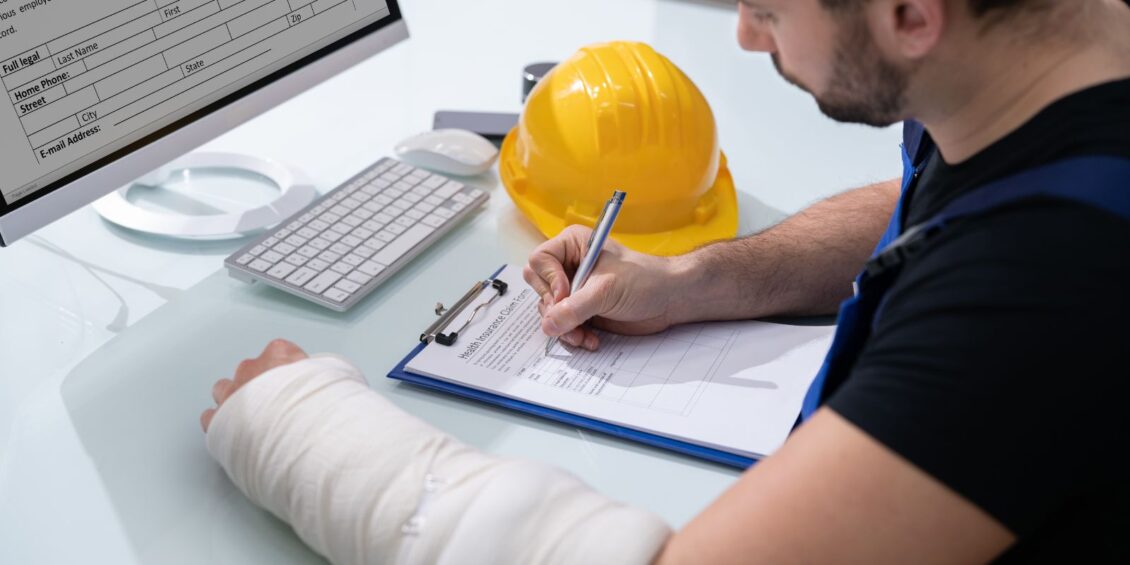Accidents at work are more common than we think, and they can happen to anyone, anywhere, at any time. The risks are always there whether you’re working in an office, on a construction site, or in a factory. But what if you could uncover shocking secrets that could save your life? In this article, we delve into the essential truths about accidents at work, revealing life-saving tips and crucial steps to take if you ever find yourself in such a situation.
The Reality of Workplace Accidents
Workplace accidents are not just statistics; they are events that can drastically change lives. Understanding the types of accidents that occur most frequently can help you stay vigilant. Each type of accident poses a unique threat, from slips and falls to machinery mishaps and exposure to harmful substances. By recognising these dangers, you can take proactive steps to avoid becoming another unfortunate statistic.
Common Causes of Accidents at Work
Knowing what causes workplace accidents can empower you to prevent them. Some of the most common causes include:
- Slippery surfaces: Spills or wet floors can lead to severe injuries.
- Inadequate training: Lack of proper training on equipment or safety procedures often results in accidents.
- Faulty equipment: Malfunctioning tools or machinery can cause unexpected harm.
- Poor lighting: Insufficient lighting in work areas can lead to slips, trips, and falls.
By understanding these causes, you can be more aware of the potential risks in your work environment.
Immediate Steps to Take After an Accident at Work
If you ever find yourself in the unfortunate position of having an accident at work, it’s crucial to act quickly. The steps you take immediately after the incident can significantly impact your health, recovery, and legal rights.
Prioritise Your Health and Safety
Your health and safety should always come first. Here’s what to do right after an accident:
- Seek medical attention: Even if the injury seems minor, it’s essential to get checked by a healthcare professional. Some injuries may not be immediately apparent.
- Report the incident: Notify your employer or supervisor about the accident immediately. This is important for documenting the event and securing any necessary evidence.
Document Everything
Documenting the accident is critical for your protection and any potential legal action. Make sure to:
- Take photos: Capture images of the scene, the equipment involved, and any visible injuries.
- Gather witness statements: If there were any witnesses, get their contact details and ask for their account of what happened.
- Keep medical records: All medical treatments and consultations related to the accident should be carefully documented.
Your Legal Rights After an Accident at Work
Understanding your legal rights after an accident at work is vital. Many workers are unaware of the protections and compensation they are entitled to, which can lead to unfair treatment or financial strain. This is where experienced accident at work solicitors come in. They can guide you through the claims process, ensuring you get the compensation you deserve for your injuries and losses. By consulting with expert solicitors, you can better understand your options and take the right steps to protect your rights and well-being.
Understanding Workers’ Compensation
In the UK, workers’ compensation supports employees suffering from work-related injuries or illnesses. Here’s what you need to know:
- Eligibility: You are likely eligible for compensation if your injury occurred while performing work-related duties.
- Benefits: Medical costs, missed income, and rehabilitation expenditures may be covered by workers’ compensation.
- Time limits: There are strict time limits for filing a claim, so acting promptly is essential.
When to Seek Legal Advice
Not all accidents at work are straightforward, and there are times when you may need to seek legal advice. Consider consulting a solicitor if:
- Your claim is denied: If your workers’ compensation claim is denied, a solicitor can help you appeal the decision.
- You face discrimination: Legal action may be necessary if you experience discrimination or retaliation after reporting the accident.
- There is negligence: If your employer’s negligence caused the accident, you might have grounds for a personal injury claim.
Preventing Future Accidents at Work
While knowing what to do after an accident is important, prevention is always better than cure. Taking proactive measures can help reduce the risk of accidents in the workplace.
Implementing Safety Measures
Employers are responsible for providing a safe working environment, but employees also play a role in maintaining safety. Here are some tips:
- Regular training: Ensure all employees receive regular safety training and are up-to-date with the latest safety protocols.
- Proper equipment maintenance: Inspect and maintain all tools and machinery to prevent malfunctions.
- Clear communication: Encourage open communication about potential hazards and safety concerns among employees and management.
Encouraging a Safety-First Culture
A culture that prioritises safety can make a significant difference in preventing accidents. Here’s how to foster such a culture:
- Lead by example: Management should consistently demonstrate safe practices and encourage employees to do the same.
- Reward safe behaviour: Recognise and reward employees who consistently follow safety protocols.
- Promote awareness: Regularly remind employees of the importance of safety through meetings, posters, and emails.
Accidents at work are more than just unfortunate events; they are life-altering moments that require immediate and informed action. By understanding the common causes of workplace accidents, knowing what steps to take if an accident occurs, and being aware of your legal rights, you can protect yourself and your future. Remember, prevention is critical, and by fostering a safety-first culture in your workplace, you can help prevent accidents before they happen. Stay informed, stay safe, and never underestimate the importance of being prepared for the unexpected.









Leave a Reply
View Comments